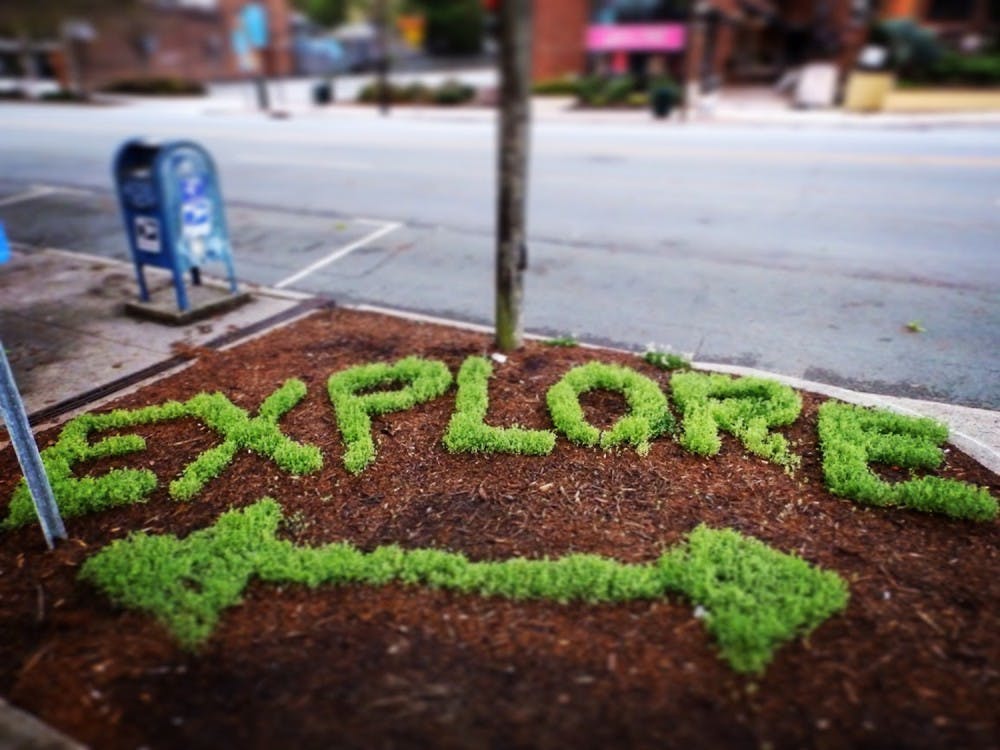Words are sprouting between sidewalks and under trees across Chapel Hill and Carrboro.
In early March, the annual multimedia project Floraffiti planted seeds in the shape of words like "choice," "aware" and "safe" in mulched areas, combining plants and words to ignite curiosity about this year's theme: environmental justice.
The project began in 2013 when a group of friends decided to plant anonymous words around the community, unsure as to how the messages would be received. Over a decade later, Floraffiti is sponsored by both the Town of Carrboro and the Orange County Visitors Bureau.
This year, Carter Hubbard, the founder and current project manager of Floraffiti, worked with two local poet laureates — Cortland Gilliam and Liza Wolff-Francis — to design poetry workshops as precursors to the plantings. In the workshops, participants were asked to write about this year’s theme of environmental justice and choose words that correlated with their writing to be displayed.
Next to each planted word, Floraffiti set up QR codes, which passing observers can scan on their phones to listen to recordings of community members reading their poetry.
“It functions as a creative way that is surprising, opens dialogue, creates connection and amplifies community members' voices in a way that is novel,” Hubbard said.
The plantings, she said, are an accessible way to engage with the topic of environmental justice, which aims to address the disproportionate impacts of climate change on marginalized identities.
“Poor communities of color are at most risk of having the harshest effects of the climate crisis,” Wolff-Francis, the Carrboro poet laureate, said.
In the past, Floraffiti has worked with community organizations such as the Refugee Community Partnership and the youth mentorship program Boomerang, as well as nonprofits that have since closed, the Sacrificial Poets and North Carolina Art Therapy.



